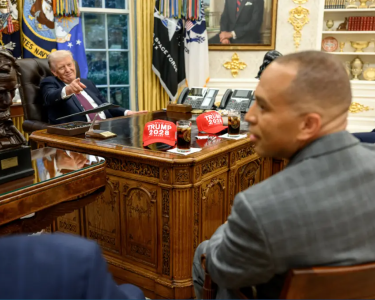
PRETORIA, Aug 5 (NNN-SANEWS) — The South African government is creating an economic response package to address job losses and lessen the impact of the United States’ decision to impose a 30% unilateral tariff on its imports.
This package will include the establishment of an export support desk and a localisation fund.
This announcement was made in a joint media statement by the Ministers of the Departments of Trade, Industry and Competition (dtic) and International Relations and Cooperation (DIRCO).
In May, South Africa submitted a comprehensive and ambitious framework deal aimed at addressing trade deficits and promoting mutually beneficial relations.
The tariffs, set to take effect from 8 August 2025, are set to create uncertainty.
However, DIRCO Minister Ronald Lamola clarified that goods already in transit before the deadline will continue to be subject to the previous 10% tariff until 5 October 2025.
The United States is South Africa’s third biggest trading partner, with the European Union and China being the first and second largest trading partners.
“Thus, we will continue to engage the US to conclude a deal that advances the interests of both countries. South Africa seeks to conclude deals that promote value addition and industrialisation, rather than extractive relations that deprive the country of the ability to beneficiate its mineral wealth by mimicking extractive colonial-era trade relations.“
The Ministers believe South Africa’s minimal 0.25% share of total United States imports makes the 30% tariff on the country “inscrutable“, especially since these tariffs are applied equally to all United States trading partners.
“South Africa poses no trade threat to the US economy nor its national security,” Lamola said.
On the contrary, the Minister said exports are crucial inputs that support America’s industrial base.
“Our agriculture exports are even counter-seasonal, meaning they fill gaps in the US market, not replace domestic products.”
Lamola said South Africa is more than a trading partner but a major investor in the United States, with local companies sustaining American jobs.
“Our goal is to preserve and grow these mutually beneficial relationships.”
Experts estimate that the potential reduction in economic growth could be 0.2%, although the exact impact is still uncertain.
Lamola emphasised that 35% of South African exports are exempt from the tariffs, including copper, pharmaceuticals, semiconductors, lumber products, certain critical minerals, stainless steel scrap, and energy products.
“Due to South Africa not enjoying a country exemption for Section 232 duties on steel and aluminium, South African companies have already adjusted to the Section 232 duties since 2018. However, the heightened policy uncertainty creates instability in trade and may have an impact on exports,” he said.
In response, South Africa is implementing a multi-faceted strategy that includes ongoing diplomatic engagement through various channels, creating an economic response package that provides export support, exploring market diversification, and targeting regions across Africa, the Americas and Asia.
In addition, the country is collaborating with the localisation fund to support industries that have been affected.
Lamola said the establishment of an export support desk will serve as a direct point of contact for companies affected by the United States tariff hike.
The aim of this support measure is to support the diversification of export markets for increased resilience and facilitate the entry into alternative markets for affected exporters.
“The desk will provide updates on developments and tailored advisory services to exporters on alternative destinations, guidance on market entry processes, insights into compliance requirements and linkages to South African Embassies and High Commissions abroad.”
Lamola said the measures are to assist companies to absorb the tariff and facilitate long-term resilience and growth strategies to protect jobs and productive capacity in South Africa.
Meanwhile, Lamola said the Localisation Fund Support (LSF) stands ready to contribute to the national effort to support South African companies impacted by the imposition of 30% import tariffs by the United States.
In addition, he said they are working with the Department of Labour on measures to mitigate potential job losses, using existing instruments within its entities that can be adjusted to respond to the current challenges.
Responding to questions, dtic Minister Tau said government is continuing to engage with the United States.
“We must negotiate in the interest of the country. We were promised a template; we are still waiting for the template,” Tau said.
The Ministers said South Africa is committed to a principled approach and will use all available diplomatic channels to negotiate with the United States. — NNN-SANEWS





